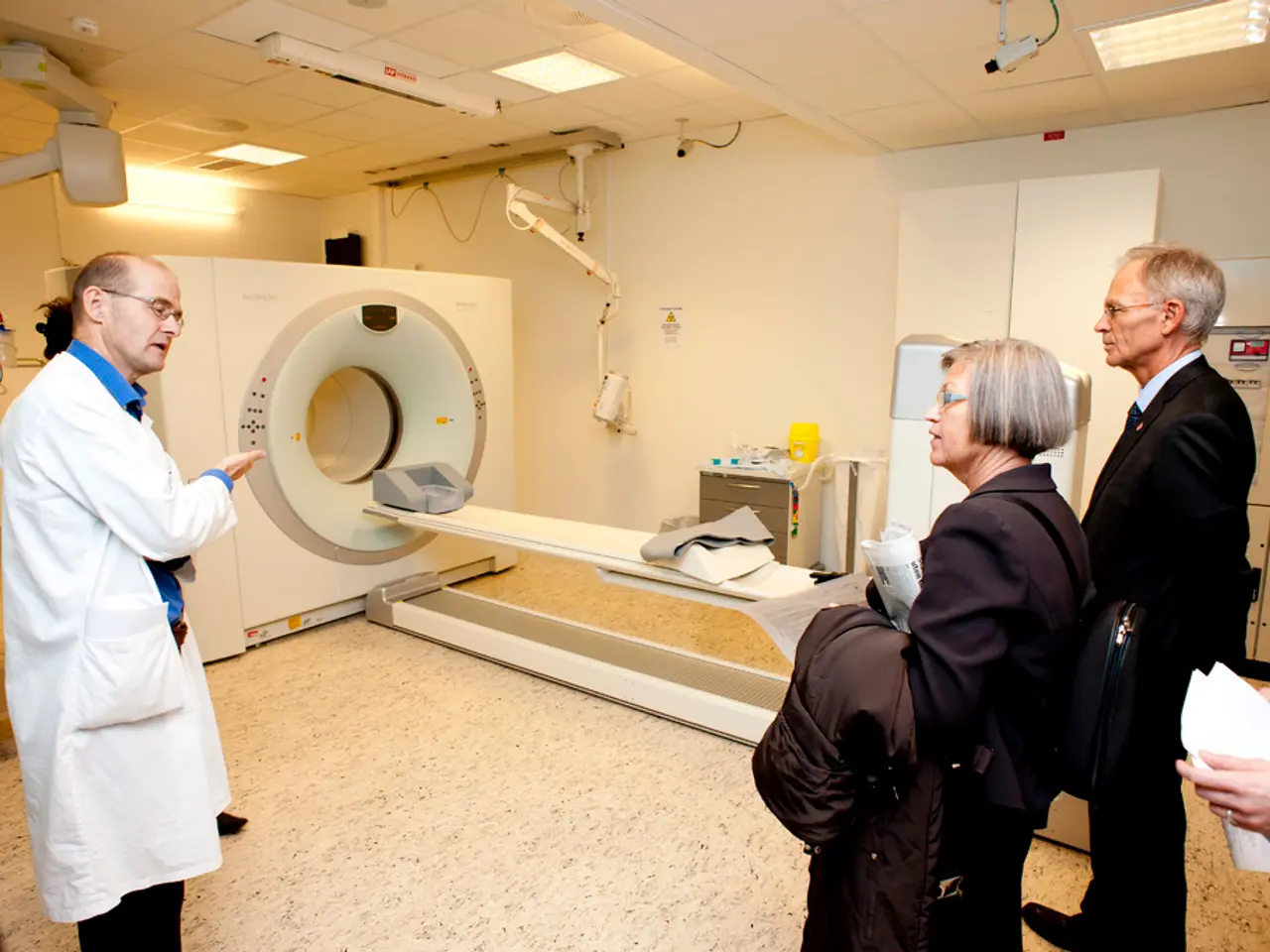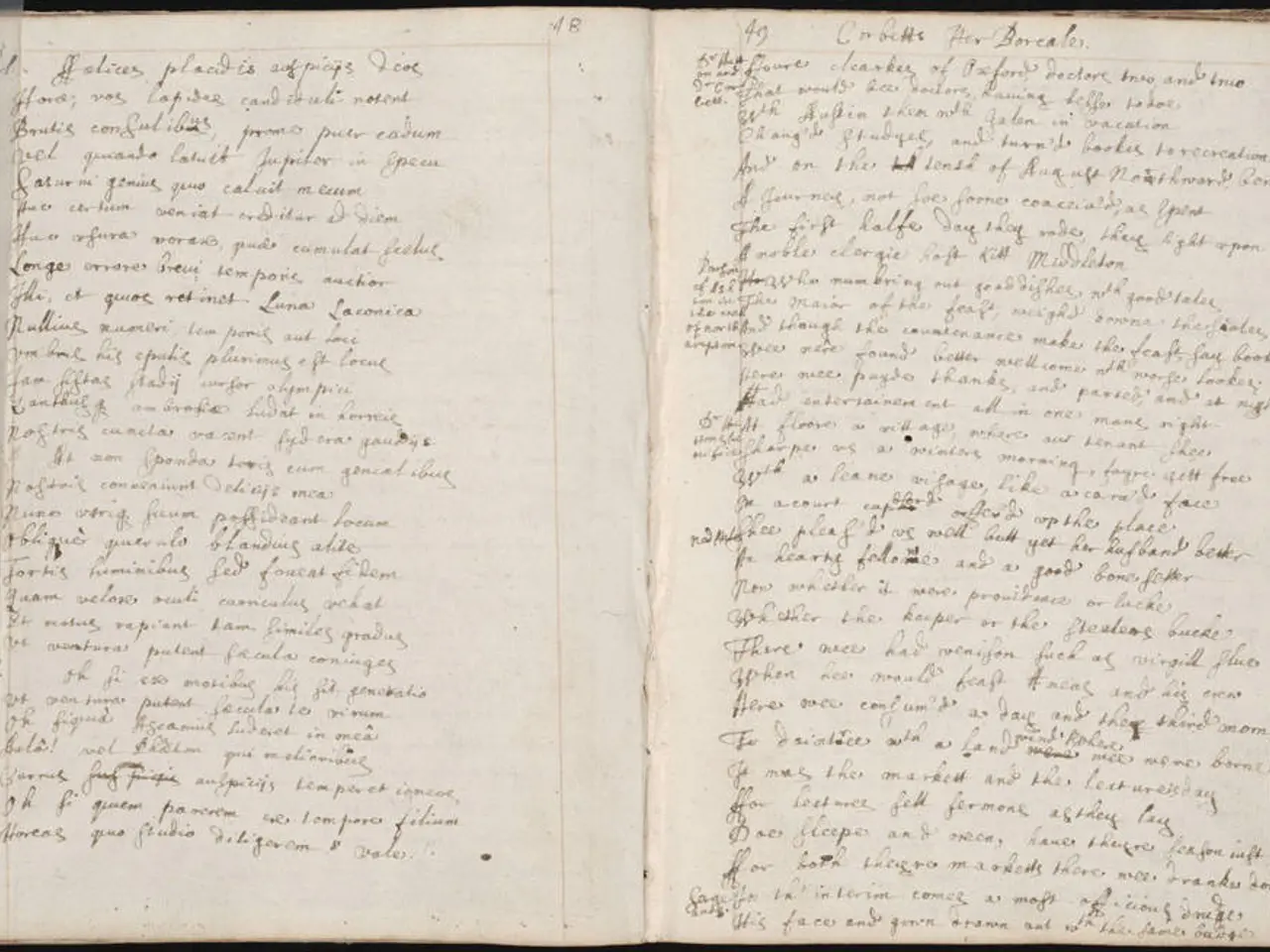Can a pregnancy occur immediately following menstruation? Methods for determining this
Getting pregnant after a period can be a confusing topic, and it's essential to understand the role of ovulation in the process.
Contrary to popular belief, the timing of a person's period does not accurately predict the likelihood of pregnancy. However, it's worth noting that the chance of getting pregnant during this time may be lower than during the five days before ovulation.
The reason for this is that fertilization can only occur if sperm meets a viable egg during ovulation. Ovulation typically happens about 12 to 14 days before the next period, and a woman's egg survives for only 12 to 24 hours after release, while sperm can live up to 3 to 5 days inside the reproductive tract.
For those with a menstrual cycle that hovers near the average, it is possible to get pregnant by having sexual intercourse as early as day seven, right after a period. In shorter cycles, ovulation may occur soon after menstruation, increasing the chance of pregnancy. Conversely, in longer cycles, ovulation happens later, making pregnancy immediately after a period less likely.
Therefore, timing intercourse close to ovulation—usually calculated by counting backward from the next expected period—is the most effective way to increase pregnancy chances.
It's important to note that becoming pregnant at this time is unlikely, especially for people not trying to conceive. For those who are trying, it's crucial to consult a healthcare professional if they experience intense abdominal pain, bleeding during pregnancy, or nausea so severe that they are unable to keep down any food.
For those who are not trying to conceive, the most effective strategy for avoiding pregnancy is abstaining from sex or using contraceptives like condoms or birth control. Fertility monitoring techniques may help pinpoint the fertile window and avoid sex or use contraceptives during this time, especially for those with regular periods.
However, people with irregular menstrual cycles may find it more challenging to predict when they will ovulate from one cycle to the next. The closer to their period a person ovulates, the higher their chances of becoming pregnant right after a period.
It's also worth mentioning that some people may find that fertility awareness methods cause stress, which may adversely affect mental health. The chances of becoming pregnant vary from person to person and cycle to cycle. The average 30-year-old person's odds of getting pregnant are about 20% per cycle, while the figure is less than 5% on average for a 40-year-old.
The ASRM suggests the following fertility awareness methods: measuring basal body temperature, tracking cycles, monitoring cervical mucus, and using ovulation detection devices. Most people who ovulate do so toward the middle of their menstrual cycle, with day one of a person's menstrual cycle being the first day of their period.
Using two methods of contraception can offer additional protection. A doctor or midwife can test for pregnancy using blood or urine tests that may be more sensitive than a home pregnancy test. A person can get pregnant right after their period if they have sex near the time of ovulation, and home pregnancy tests can confirm pregnancies, with a negative test possibly indicating a need to wait and test again.
A doctor or midwife can also test for pregnancy, check fetal development, and advise about early pregnancy health. It is beneficial to book an appointment with a healthcare professional by 10 weeks. A 2019 study found that a person had the highest chance of getting pregnant if they had sex on the day of ovulation or the five days preceding it.
- Understanding the role of ovulation in getting pregnant is crucial during pregnancy planning.
- Misconceptions exist about the predictability of pregnancy based on the timing of a person's period.
- Fertilization occurs during ovulation when a sperm meets a viable egg, and the egg survives for only 12 to 24 hours.
- Sperm can live up to 3 to 5 days within the reproductive tract after sexual intercourse.
- For those with average menstrual cycles, the chance of getting pregnant can be high starting day seven, right after a period.
- Shorter cycles may lead to ovulation soon after menstruation, increasing the chance of pregnancy.
- In longer cycles, ovulation occurs later, making pregnancy immediately after a period less likely.
- Timing intercourse close to ovulation is the most effective way to increase pregnancy chances.
- Consulting a healthcare professional is essential for those trying to conceive to address potential issues like abdominal pain, bleeding, or severe nausea.
- For those not trying to conceive, abstaining from sex or using contraceptives like condoms or birth control is the most effective strategy for avoiding pregnancy.
- People with irregular cycles may find it challenging to predict when they will ovulate from one cycle to the next.
- Fertility awareness methods, such as measuring basal body temperature, tracking cycles, monitoring cervical mucus, and using ovulation detection devices, can help pinpoint the fertile window.
- Using two methods of contraception provides additional protection, and home pregnancy tests can confirm pregnancies, with a negative test possibly indicating a need to wait and test again.
- Regular appointments with a healthcare professional during early pregnancy (by week 10) are advisable to check fetal development and provide advice on early pregnancy health.




